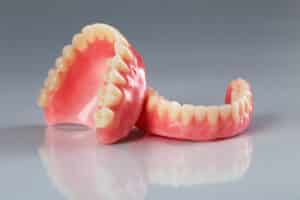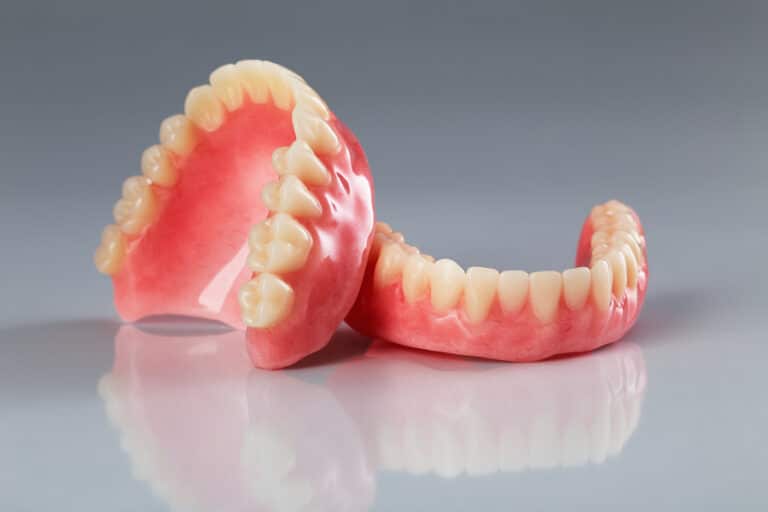For seniors switching to dentures can be a big adjustment that requires a lot of support, as well as mental and physical adjustments. While dentures can efficiently restore their ability to chew and communicate, getting used to them can be difficult. However, with home care assistance providers and loved ones by their side, offering understanding, patience, and the appropriate information, seniors can easily navigate the transition to dentures with confidence.
Getting Past the Adjustment Period
It is common for seniors to experience uneasiness when they receive dentures for the first time. There can be some initial pain, increased salivation, and mild irritation while the mouth adjusts to the new sensation. Depending on the situation, this adjustment phase may extend for a few weeks or several months. Seniors will need a lot of reassurance from their support team during this time, as well as encouragement to continue wearing the dentures so they become second nature.
Promoting Denture Maintenance and Dental Hygiene
Both the longevity of the dentures and oral health depend on proper denture maintenance.
Seniors who wear dentures can efficiently maintain them using the following care tips:
Clean Dentures Daily: Seniors should be encouraged to clean their dentures on a daily basis to prevent plaque and food buildup. With home care assistance, they can learn the best way to clean the dentures as well as be reminded about proper dental hygiene.
Appropriate Handling: It’s important to be gentle while handling dentures, as they are fragile and might break if dropped.
Overnight Soaking: Dentures should be soaked in water or a denture-cleaning solution overnight to keep them moist and maintain their shape. Also, seniors should be told not to use hot water because it can cause the dentures to warp.
Helping Seniors Adjust to Eating With Dentures
Particularly in the beginning, eating with dentures can be a big adjustment. Unfortunately, this might cause some seniors to skip meals, which can be detrimental to their overall health.
With this in mind, the home care team and loved ones can suggest the following tips and tricks:
Start Soft: Soft foods like yogurt, scrambled eggs, and mashed potatoes are a good place to start. As seniors get more used to chewing with dentures, they can gradually try firmer foods.
Slice Food into Manageable Pieces: By reducing the size of food, chewing can become less daunting. Additionally, seniors should be encouraged to chew slowly and on both sides of their mouths to keep the dentures from tipping.
Stay Hydrated: Seniors should focus on staying hydrated every day, but it’s even more important when transitioning to dentures, as dehydration might make wearing dentures more difficult.

Encouraging Regular Dental Visits
Seniors might think they get to pass on dental visits when they transition to dentures. However, even with dentures, it’s important to maintain regular dental exams. During the visits, dentists can examine for oral health issues and make sure dentures fit appropriately. With home care assistance, seniors can be reminded to schedule and attend their visits. Additionally, home care can provide transportation if needed.
With home care assistance and the support of loved ones, the transition to dentures can be easier for seniors, especially when the above-mentioned tips and tricks are incorporated.
If you or an aging loved one are considering Home Care Assistance Services near Weston CT, please call and talk to our friendly and dedicated staff. (203) 744-8380
Home Care Advantage provides quality Non-Medical Home Care for seniors and families in Danbury, Bethel, Easton, Newtown, Redding, Ridgefield, Southbury, Weston, Westport, Wilton, and surrounding areas.
With over 25 years of healthcare experience working with seniors, our model and approach to non-medical home care services are straightforward, providing you with the compassionate care you deserve. Providing care from the heart is what we are all about; we proactively work with you and your family to develop a care plan designed to meet your specific need for assistance and budget.
In addition to having an extensive work background in healthcare, my recent educational experience allowed me to earn my Doctorate Degree in public healthcare. This achievement enhanced my knowledge of the ever-evolving healthcare delivery system and heightened my awareness that you cannot go it alone to get the best outcome. Additionally, I have seen how some of my family members struggled and were overwhelmed with ensuring that their parents were safe and their needs were met. They did not know who to trust or where to turn for reliable and affordable help. I have made it our mission to be part of the solution allowing seniors to remain independent and be treated with the respect they deserve.
We are committed to providing excellent care for our clients, just as we would care for members of our own families. Please be assured that I will use my knowledge and background to protect and be a trusted resource for seniors and their families.
You can be confident that our caregivers are carefully screened, dependable, and selectively chosen to meet the specific needs of our clients. They are experienced and highly trained to provide excellent quality care and follow a strict professional code of conduct and ethics.
Our caregivers are competitively paid directly by our agency; there is no additional charge to you. Home Care Advantage files Social Security/Medicare, Federal and State Withholding Tax, and Unemployment Insurance for our employees. Workers’ compensation insurance and a fidelity bond cover the caregivers and supervisory staff.
Our caregivers are here for you and will work hard to assist you with your specific needs in the comfort of your own home. It is said that “Home is where the heart is.” Let Home Care Advantage provide care that will enrich your life and help you maintain an independent lifestyle in the comfort of your own home, “where you want to be.” Call us now! We look forward to working with you and your family.
Dr. Beverly J. Ruekberg, DHP, MPH, MA, Ed.
President/Geriatric Care Manager
- Loneliness and Homebound Elderly - June 5, 2025
- Signs Your Senior Parent Needs Extra Help At Night - May 15, 2025
- Healthy Spring Meals Your Senior Parent Will Love - May 1, 2025



